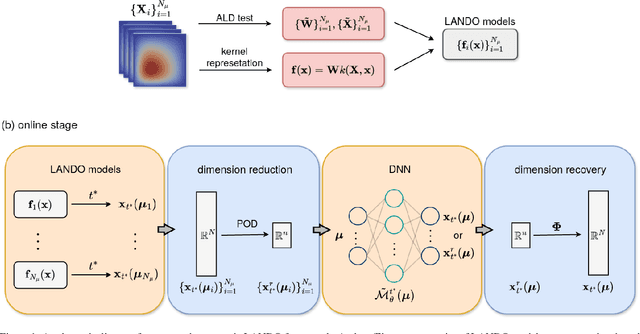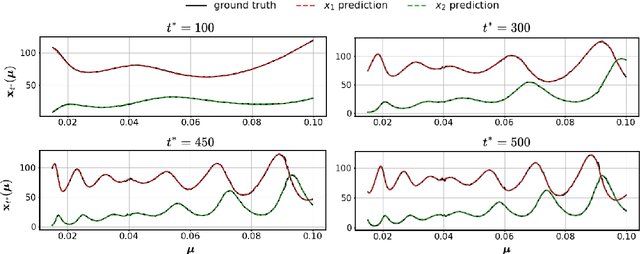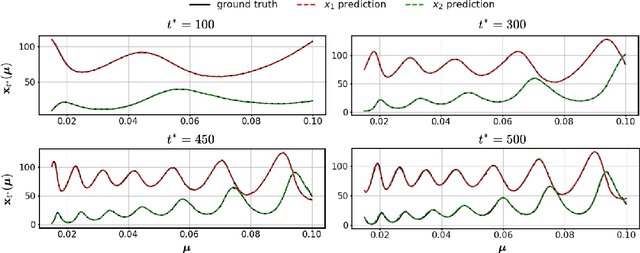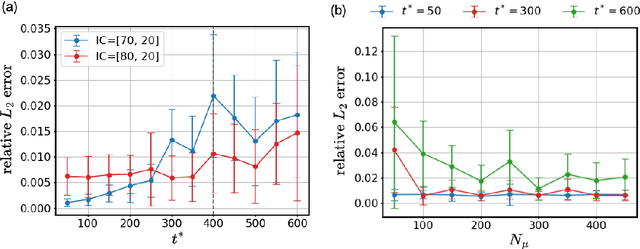Konstantinos Kevopoulos
A parametric framework for kernel-based dynamic mode decomposition using deep learning
Sep 25, 2024



Abstract:Surrogate modelling is widely applied in computational science and engineering to mitigate computational efficiency issues for the real-time simulations of complex and large-scale computational models or for many-query scenarios, such as uncertainty quantification and design optimisation. In this work, we propose a parametric framework for kernel-based dynamic mode decomposition method based on the linear and nonlinear disambiguation optimization (LANDO) algorithm. The proposed parametric framework consists of two stages, offline and online. The offline stage prepares the essential component for prediction, namely a series of LANDO models that emulate the dynamics of the system with particular parameters from a training dataset. The online stage leverages those LANDO models to generate new data at a desired time instant, and approximate the mapping between parameters and the state with the data using deep learning techniques. Moreover, dimensionality reduction technique is applied to high-dimensional dynamical systems to reduce the computational cost of training. Three numerical examples including Lotka-Volterra model, heat equation and reaction-diffusion equation are presented to demonstrate the efficiency and effectiveness of the proposed framework.
 Add to Chrome
Add to Chrome Add to Firefox
Add to Firefox Add to Edge
Add to Edge